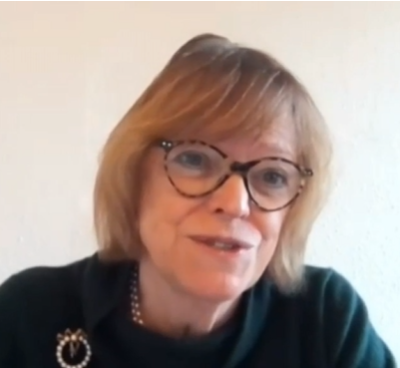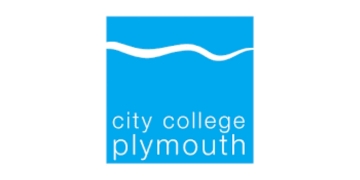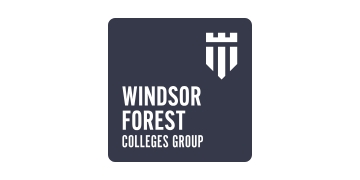The government is considering making “adaptations” to exams in 2022 similar to those proposed for this summer’s assessments before they were cancelled, the head of regulator Ofqual has said.
Simon Lebus (pictured), the interim chief regulator, told MPs this morning that the “thinking at the moment is about adaptations along the line that had been originally contemplated for this year when exams were still to go ahead”.
The government proposed last year that grading for exams in 2021 would be as generous as it was in 2020, and that students would get advance notice of topics in certain subjects and be allowed to use exam aids.
Those plans were abandoned in January when exams were cancelled following partial school and college closures.
But Lebus suggested this morning that some of them may be resurrected next year in recognition that future exam students will also have been impacted by the pandemic.
“So far as 2022 is concerned, the thinking at the moment is about adaptations along the line that had been originally contemplated for this year when exams were still to go ahead,” he told the education select committee.
“And that’s based on the reality of the cohort taking exams next year will have suffered considerable disruption to their learning, though we would hope not on the scale and at the level that has been suffered by this year’s cohort, so that it would be a reasonable thing to carry out some form of public exams but that they would be adapted to reflect the learning disruption that’s taken place.”
Different approach may be needed for future exams
His comments come after MPs raised concerns about grade inflation being “baked in” to the system for years to come. Grades will be issued on the basis of teacher assessments this year.
Lebus said this morning said the process of recovering lost learning would take “several years”, adding there would “have to be policy initiatives in place to deal with that over a period of time”.
In terms of what happens after 2022, Lebus said there needed to be “reflection on what we do longer-term to the exam system to take account of the disruption that’s occurred over the last three years and the disjunct before and after”.
“And so you inevitably end up asking the question, do we in post-Covid times approach things slightly differently?
“And all sorts of issues have been raised about coursework, teacher judgment, there’s always been a dialogue going on about the weight you give teacher judgment as opposed to summative exams, though all those have been issues that have been surfaced by this and they will form part of the policy mix that is determined in order to address lost learning over the coming years.”

Dame Glenys Stacey
It comes after Dame Glenys Stacey, who served as interim chief regulator at Ofqual between September and December last year before Lebus took over, warned there would be a “long backwash to this pandemic in education”. She said the need for a “good and considered and open discussion about what the right thing to do would be”.
Stacey also previously warned that going “straight back” to standards seen pre-pandemic in 2022 “wouldn’t be fair”.
“We need to see how the pandemic washes through so we can have the broad discussion about where standards are set for 2022,” she told MPs last year.
Schools minister Nick Gibb also accepted in December that the government would need to “look again, as the pandemic proceeds, to see what happens about what we do in 2022, because again, the 2022 cohort will have suffered some disruption to their education as well”.








In the 19th Century, pupils used slates and chalk. They were assessed on their competence and motivation through their learning.
In the 20th century, when paper and pens became affordable, the pupils used these.
In the 1970s, university access was widened and the Polytechnics became ‘the University of…….’.
The message is this – methods change and evolve, but it is the quality of teaching that is the key driver of educational excellence.
Place a motivated and skilled teacher in front of a child willing to learn, and learning will take place.
Perhaps the third decade of the 21st century will see another seismic shift – no more exams………
Philip, these could be enlightening times, if those in charge truly are leaders and have vision.
The last year has accelerated the cash-less society, the demise of the cheque book and the limit for the plastic card transaction raised to £100.
The opportunity is there.
The school/college exam/assessment system is arguably not fit for purpose. Students roll on from one year to another, en masse, proceeding and progressing due to being a year older rather than having reached competence to take the next step.
Years ago the idea of ‘being assessed at the point of readiness’ was mooted. I’m not sure but don’t think it ever really developed. Some could take one/two GCSEs early but then there was pressure to be taking so many exams in one sitting.
I’ve known several students who were ‘bored’ in lessons as they were ahead of the game – differentiated learning sounds great but can prove a challenge for a teacher with 20+ students in a class.
I believe the disruption caused by COVID at least gives an opportunity to think outside the box and explore appropriate forms of assessment rather than fall back into a style that seems little changed from my school-days back in the 1960s.
However, do we have ‘shakers and movers’ or ‘change-resistant’ leaders?
Time will tell – but a golden opportunity has arisen from the ashes of COVID, for a debate at least.
‘The Covid crisis is the moment’ – a quote from BJ during the last year.